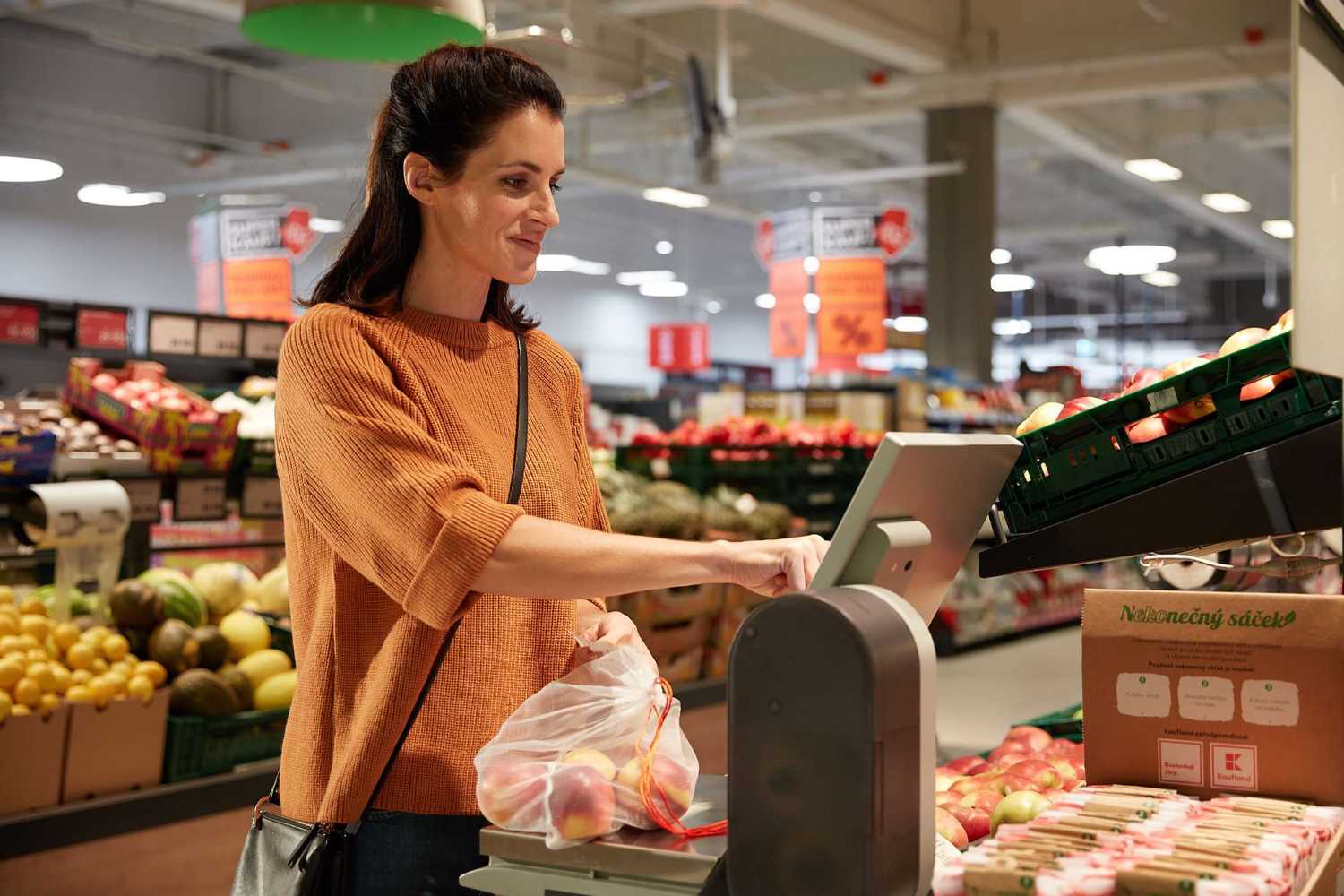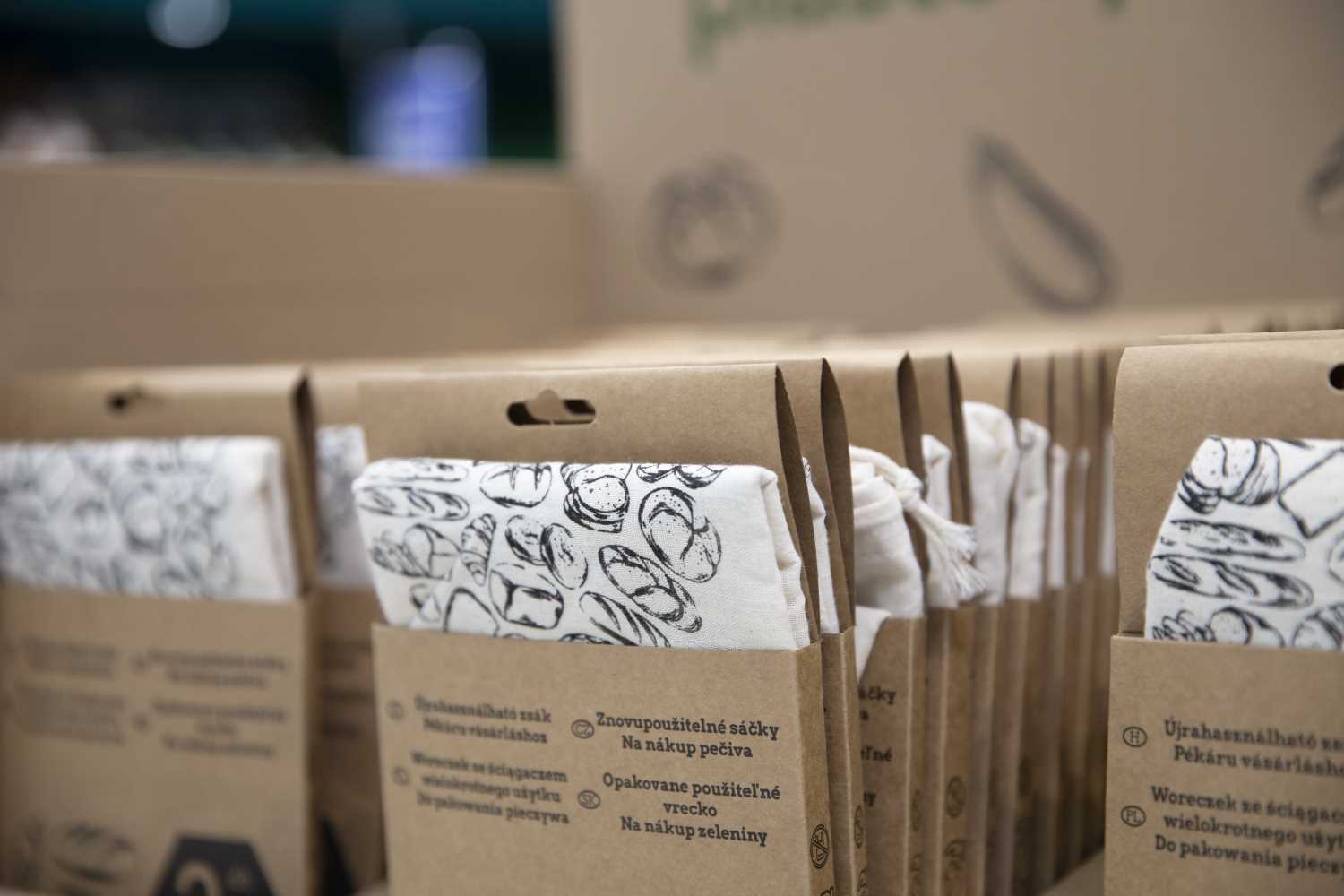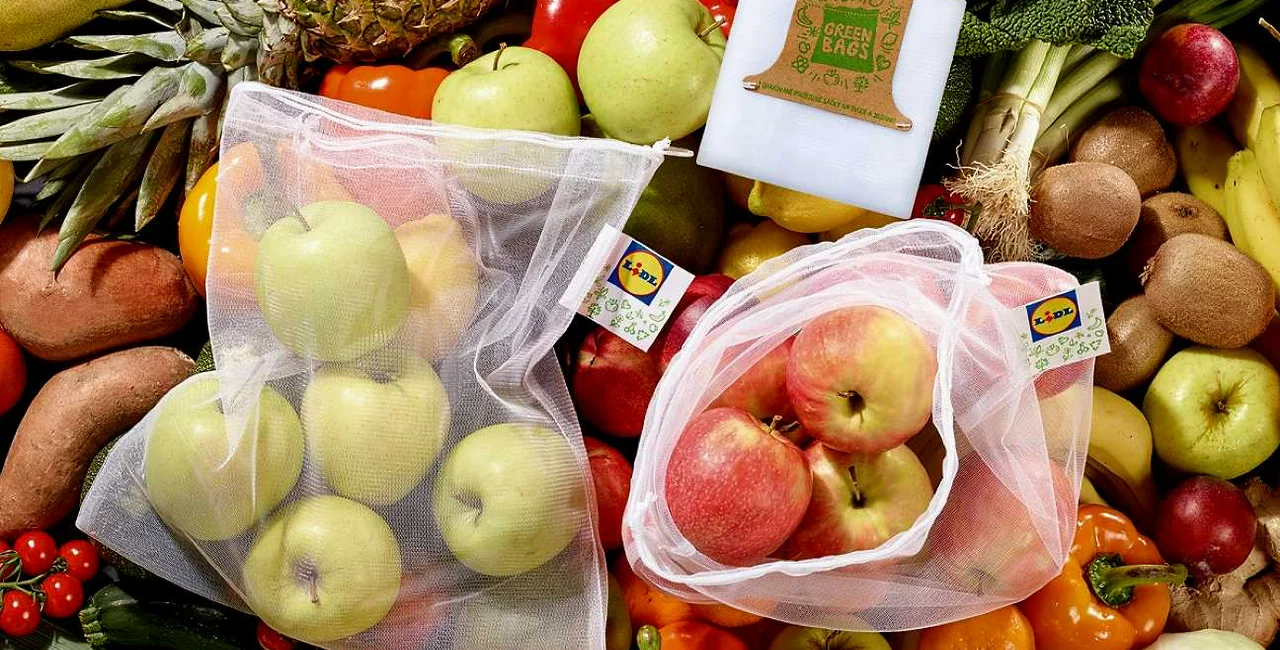Several supermarket chains in the Czech Republic are moving away from single-use plastic and offering reusable bags for fruits and vegetables.
Supermarket chain Lidl is removing single-use plastic bags for fruits and vegetables, and offering reusable bags as an alternative. Last year over a quarter of a billion thin single-use plastic bags were consumed in Lidl stores, according to a company press release. A package of two reusable polyester bags costs 19.90 CZK.
“Offering reusable bags as an alternative to single-use bags is the next step in our corporate Reset Plastic strategy. This is aimed at reducing the amount of plastic in our private label products, which we are working hard on,” Michal Farník, the general manager for Lidl ČR, said.
The German-based retail chain Lidl, part of the Schwarz retail group, introduced the same reusable bags across the UK in August 2019. The company has pledged to reduce plastic packaging by 20% by 2022 and make sure 100% of its own-brand packaging is widely recyclable, reusable, refillable or renewable by 2025.
The Schwarz retail group’s Reset Plastic policy is aimed at reducing, removing, redesigning, and recycling plastics while researching alternatives.
“We are working intensively with our suppliers on this measure, examining the possibility of replacing or reducing the plastic packaging for each individual product. As an example we can mention the weight reduction of PET bottles and the strength of the covering for six-unit beverage packages of our private brand Saguaro. This step will save up to 300 tons of plastics per year,” says Michal Farník. Moreover, the packaging film is unprinted and thus more easily recyclable.
In March 2017, Lidl stopped the sale of single-use carrier bags, which has resulted in a reduction of 27 million plastic bags annually.
Last year, sales of disposable plastic products such as cups, straws, cutlery or stems in cotton buds were also discontinued. For cotton buds alone, whose plastic rod has been replaced by cardboard, the savings is more than 21 tons of plastic per year.
Other steps such as reducing the plastic film thickness of selected products or reducing plastic packaging will save more than 37 tons of plastic per year.

Lidl is not alone. Kaufland, which like Lidl is part of the Schwarz retail group, introduced reusable bags last October. The nEKOnečný bag has a space at the top for weight and price labels. The bags are sold in packs of two for 29.90 CZK. The name nEKOnečný is a combination of the Czech words for ecological and endless.
They have also moved to reusable shipping cartons for fruits and vegetables to reduce waste, and have stopped wrapping cucumbers in plastic.
Kaufland has also eliminated plastic dishes and plastic rods in cotton buds, in line with the corporate Reset Plastic policy, and offers alternatives to single-use plastic carrier bags at check out.

In select stores, Tesco has introduced reusable certified organic cotton bags for bread products, fruits and vegetables. They are available in four types of double packs ranging in price from 39.90 CZK to $ 54.90 CZK.
Discount chain Penny has introduced a reusable “ovosáček” for bread, fruits and vegetables, at a cost of 19.90 CZK each. They have also eliminated single-use plastic carrier bags and instead offer paper, textile, or polyester bags for sale. The name ovosáček is a combination of the Czech words for fruit and bag.
Lidl was the market leader in the Czech Republic for the 2018/19 financial year, with a turnover of 57.5 billion CZK and profit of 4.8 billion CZK. Kaufland, which had been is first place saw its turnover drop to 56.2 billion CZK and profits drop to 1.2 billion CZK, according to public records. Part of the drop in Kaufland’s profit was due to investment in modernization.












 Reading time: 3 minutes
Reading time: 3 minutes 


 English
(Proficient)
English
(Proficient)

























